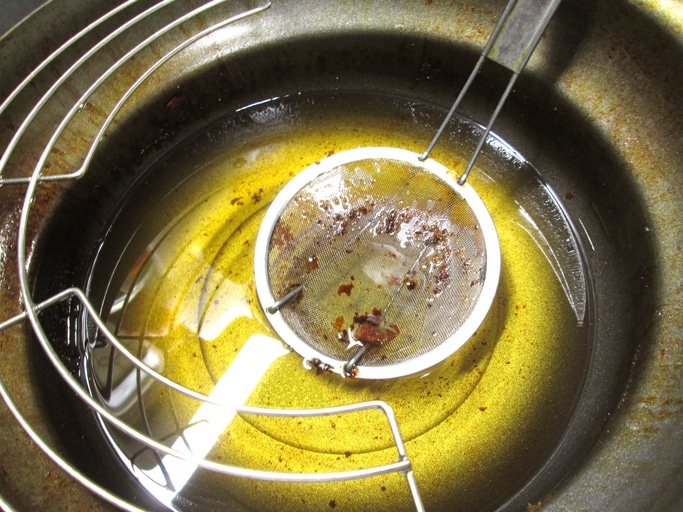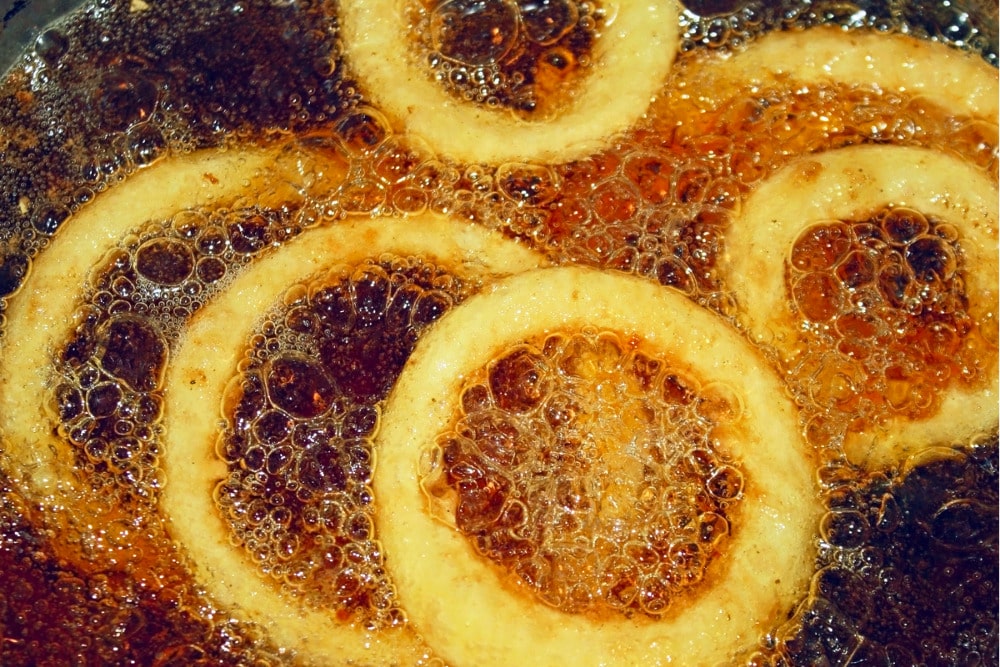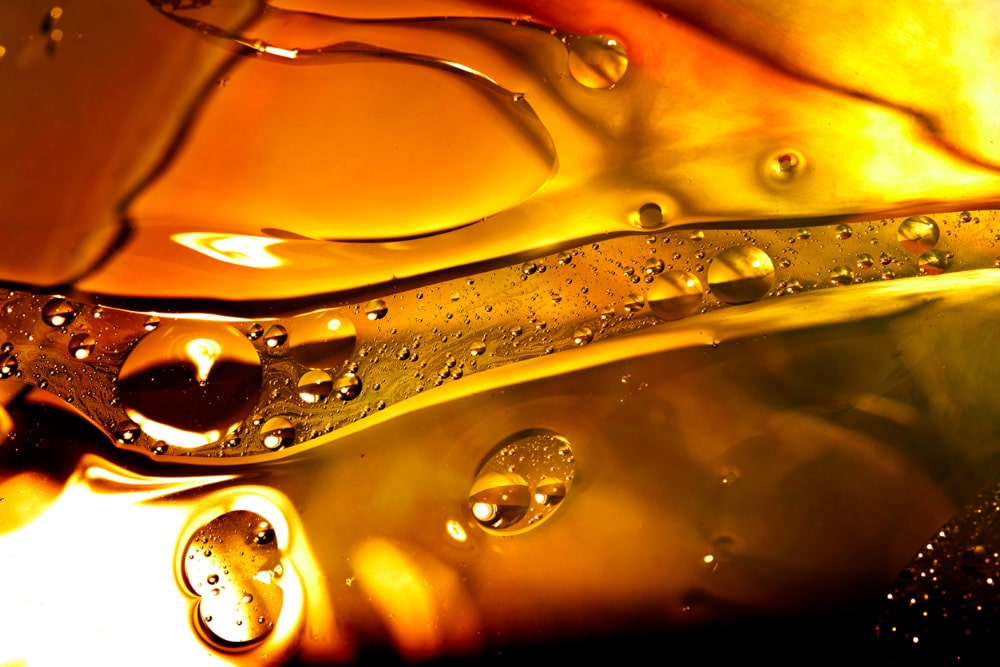No matter what kind of fried food fare you want to produce – vegan corndogs, french fries, or mozzarella sticks, etc. – the output of these items is the same: gallons of used cooking oil.
Before we talk of what to do with this seemingly unusable oil, let’s discuss the important factors in choosing the right cooking oil for your business’ deep-frying needs.
Choose Your Oil Based on Smoke Point
What does “smoke point” mean? This is the temperature a specific cooking oil can reach before deteriorating. Should the oil’s temperature go beyond that, it deteriorates; by “deteriorate” we mean it loses both its taste and nutritional value.
Also, once past the smoke point, the oil could catch fire and pose a safety hazard.
The Importance of the Smoke Point
When it comes to food production, oil with a higher smoke point is favorable for deep-fried food. A higher smoke point means that you can cook the food thoroughly in this oil, and you can reuse it without it turning rancid first.
Studies have shown that when a cooking oil has been reused too many times, it can develop a cancer-causing substance called acrolein, in addition to other unhealthy toxins.
Acrolein has been found to worsen existing tumors and certain types of cancer, such as breast cancer, as well as cause atherosclerosis or clogging of the arteries by fatty deposits. Note that reused cooking oil doesn’t necessarily cause cancer by itself, but can worsen existing ones.
Apart from safety and health, another important reason you should know the exact smoke point of your cooking oil is to determine how many times you can reuse the oil.
How Many Times Can You Reuse Oil?

First, you must know that it’s not unethical or unusual to reuse cooking oil; in fact, for many, it’s an industry practice to reuse cooking oil, but only for a limited number of times. The number of times you can reuse cooking oil depends largely on its smoke point, although another factor must be taken into account—what was cooked in the oil.
Note: This information is intended to give an idea of how to safely reuse cooking oil. Please see specific health and safety guidelines for food production for more information on reusing cooking oil.
The first food to be fried in the oil dictates what you can use the oil for. This is because cooking oil tends to take on the smells and flavors of what was deep-fried in it.
For example, frying french fries in oil that was used for potato chips shouldn’t be a problem, but frying donuts in oil that was used for seafood is a no-no.
You cannot immediately reuse the oil because it must be filtered after each use. This is done to remove any impurities or debris from what was last cooked in the oil.
Debris like bits of french fries, potato skin, burnt breading or batter, bits of chicken skin, etc. must all be filtered out to avoid changing the flavor of the oil and the food that will be fried in it next.
Consider Oil Quality
Other factors that may influence the reusability of cooking oil is the quality of the oil, the cooking duration for food, and the cleanliness of the fryer. More refined oils have a higher smoke point, and a clean fryer has fewer impurities that can reduce the number of reuses.
Remember that with each use, an oil’s smoking point is lowered. This is because, as oil is heated, it creates more fatty acids that make the oil reach the point of degradation quicker.
With each use, cooking oil becomes darker and thicker. Sometimes, the oil can become cloudy as well as develop a strange smell. Depending on the oil, this happens between 2-5 uses.
Once the oil or the food you deep-fried comes out with an unusual and unpalatable color, taste or smell, that’s how you know the oil can no longer be reused and it’s time to dispose of it.
Oils You Can Use
For deep-frying, there are several types of oil that have a high smoke point, and can, therefore, be reused a few times before you need to dispose of or recycle the existing oil and switch to a fresh batch. These are the most popularly used types with smoke points for your reference:
- Canola Oil — 225 °C (437 °F)
- Coconut Oil — 177 °C (351 °F)
- Corn Oil — 235 °C (455 °F)
- Palm Oil — 230 °C (446 °F)
- Peanut Oil — 231 °C (448 °F)
- Safflower Oil — 242 °C (468 °F)
- Sesame Oil — 232 °C (450 °F)
- Soybean Oil — 240 °C (464 °F)
- Sunflower Oil — 240 °C (464 °F)
The smoke points listed here are for semi-refined or refined versions of these oils. If you’re wondering why a more exotic oil like extra virgin olive oil isn’t on this list, it’s because its relatively low smoke point (190 °C or 374 °F) makes it a poor choice for cost-efficient deep-frying. This is why olive oil is mostly added to dressings and used for finishing pastas or pizzas.
How to Dispose of Used Cooking Oil
Once you cannot use your cooking oil anymore, what do you do with it? How do you dispose of it? One very important thing you shouldn’t do is pour it down the drain. Doing this can be harmful to wildlife and the environment, and could eventually destroy your drainage pipes.
The best way to dispose of your used cooking oil (UCO) is to sell it to a company that is well-versed in finding the best use for the oil you cannot use anymore.
Take all your used cooking oils or UCOs, then store them in approved containers. A company like GF Commodities provides receptacles for bulk used oil storage while they wait to be removed and transported. You don’t have to worry about transporting gallons upon gallons of UCOs when you choose to work with us.
With our nationwide transportation network, we will go to your site, buy your UCOs, and you won’t be charged a cent for service or transportation charges. We pay 100 percent of the in-spec weight of your product to you. This means you will get the most value when you choose our services.
It’s as clear as a gallon of unused cooking oil that getting into a deep-frying food production can be very profitable. Frying your product, selling it to hungry consumers and reusing the oil as much as possible, then collecting, storing and saving the UCOs for companies like ours to buy from you is a huge win-win situation.
The money you make from selling your UCOs to us can provide your business with added income and funds for growth. If you’ve already started your company and have more UCOs than you know what to do with, call Dan Kozubek at 816-812-8685 or click here to fill out our contact form!



